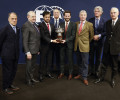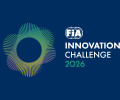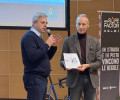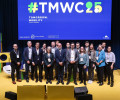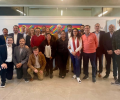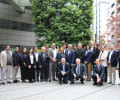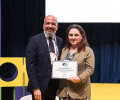Strengthening Mobility
The World Council for Automobile Mobility and Tourism met on 2 May to discuss a broad range of issues including road safety advocacy; the ongoing development of the FIA University; sustainable mobility; and renewed investment in support for tourism services.
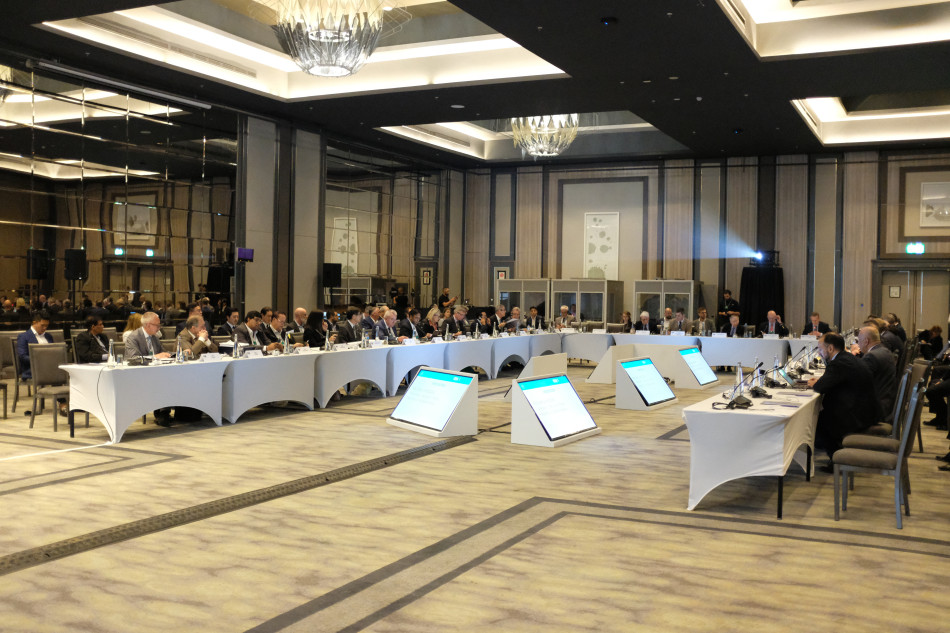
In line with the road safety priorities of the Federation, the World Council approved the creation of a Steering Committee to strengthen the oversight of current and future global road safety campaigns. The Committee will ensure guidance to the FIA’s #3500LIVES campaign, as well as coordination with existing advocacy initiatives both within the FIA, and globally with the broader road safety community.
The World Council was informed that the Committee, which would meet twice per year, will specifically look at: messaging and ambassador involvement, audience and geographical scope, deployment strategies, budgeting, strategic partnerships, and monitoring and evaluation of campaign effectiveness. The proposed composition of the Committee includes the FIA President, the FIA Secretary General for Automobile Mobility and Tourism, the FIA Foundation Executive Director, the Chair/Vice Chair of the FIA Mobility Policy Commission and the FIA Director of Communications (acting as Campaign Director).
The World Council heard from Tim Shearman, the incoming Chair of the FIA University Board, that the University would continue to pursue its 2021 strategic goals, namely to attract strong participation from FIA Clubs, to diversify content and delivery mechanisms, and to maintain high participant satisfaction of existing programmes. Doing so would require the implementation and development of current FIA University programmes.
It was confirmed that the FIA University would also be launching an e‑learning pilot module in the second semester of 2019, as well as create of an FIA University Alumni community. In addition to the new Chair, it was also announced that Ian Stone, Managing Director RAA, has been appointed to the Board. Both Tim Shearman and Ian Stone have been appointed in light of the retirement of Terry Agnew.
On the sustainable mobility front, the World Council was updated on the development of the proposed urban mobility project, with its two‑fold approach centred on a benchmarking tool (Frost and Sullivan’s “City Tracker”) and its analytical modelling tool (Siemens’ modelling and simulation programme). The World Council took note that funding for this project had been approved by the FIA Innovation Fund Steering Committee (FIFCO).
Other points noted by the World Council included the establishment and launch of the Green NCAP programme (a consortium of governments and Clubs to promote more fuel efficient and less noxious vehicles through rigorous real‑ world testing) and a report on the third season of the FIA Smart Cities initiative.
The World Council heard of the renewed investment in support for tourism services. In particular, the OTA revamp, now in its second phase, has defined its proposition to generate greater value to Members. This includes the development of a new business model and design, the improvement in quality and consistency of source travel data, a revised fee structure, and a new, user‑friendly design.
In addition, the WCAMT approved a plan for further reform of FIA membership fees. There was also rigorous discussion about the role of the FIA Manufacturers’ Commission.
The World Council paid its respects with a minute of silence to mark the sorrowful loss of AMSS (Serbia) President Mirko Butulija and the recent passing of RACC (Spain) Honorary President Sebastià Salvadó.
Takayoshi Yashiro, who will be retiring from his current role as President of JAF (Japan) and as a Member of the World Council, received an honourable mention for his contribution to the FIA, including his past service as President of FIA Region II (Asia and Pacific).

 Facebook
Facebook Twitter
Twitter
